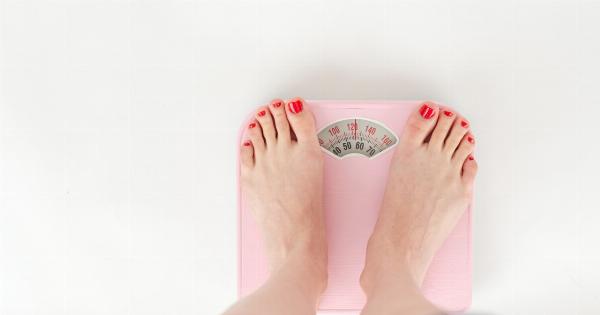Keeping track of your weight can be a useful tool when it comes to managing your overall health and well-being. However, the frequency at which you step on the scale can vary depending on your goals and individual circumstances.
In this article, we will explore how often to weigh yourself and discuss the factors that should be taken into consideration.
Importance of Weighing Yourself
Before diving into how often you should weigh yourself, let’s first understand why it is important to keep track of your weight.
Your weight is an indicator of your body mass index (BMI), which is a measure of your body fat based on your height and weight. Monitoring your weight can help you in the following ways:.
- Track Weight Loss or Gain: If you are on a weight loss journey or trying to gain muscle mass, regular weighing can help you track your progress and make necessary adjustments to your diet and exercise routine.
- Maintain a Healthy Weight: By monitoring your weight, you can ensure that you are maintaining a healthy weight range, reducing the risk of various health conditions such as heart disease, diabetes, and high blood pressure.
- Accountability and Motivation: Weighing yourself regularly can provide a sense of accountability and motivation to stick to your health goals. It can help you stay on track and make healthier choices.
- Identify Patterns and Triggers: By keeping a record of your weight fluctuations, you may be able to identify patterns or triggers that affect your weight. This awareness can help you make necessary lifestyle modifications.
Determining the Ideal Frequency
The ideal frequency to weigh yourself can vary depending on your individual goals, preferences, and the stage of your weight management journey. Here are a few factors to consider when deciding how often to weigh yourself:.
1. Weight Loss and Maintenance
If you are actively trying to lose weight, a weekly weigh-in could be beneficial. This frequency allows you to monitor progress over time without getting too caught up in daily fluctuations.
However, if you find weekly weigh-ins discouraging or mentally draining, you can opt for biweekly or monthly weigh-ins instead. The key is to find a balance that works for you.
Once you have reached your weight loss goal, shifting to monthly or even semi-annual weigh-ins can help you maintain your progress without becoming obsessive about the numbers on the scale.
2. Body Composition Goals
If you are specifically focused on changing your body composition, such as building muscle or losing body fat, weighing yourself may not be the most accurate measure of progress.
Body composition changes may not always be reflected on the scale due to factors such as water retention or muscle gain. In such cases, relying more on measurements, progress photos, or how your clothes fit can provide a better assessment of your progress.
3. Emotional and Mental Well-being
Weighing yourself can have a significant impact on your emotional and mental well-being. For some individuals, daily weigh-ins can lead to anxiety, frustration, or disordered eating patterns.
It is essential to prioritize your mental health above weight monitoring. If weighing yourself frequently negatively affects your mental state, it might be better to limit weigh-ins to a monthly or even less frequent basis.
4. Personal Preferences
Your personal preferences regarding weighing frequency should also be taken into consideration.
Some individuals find daily weigh-ins helpful for accountability and motivation, while others find it more beneficial to focus on overall lifestyle changes rather than fixating on daily fluctuations. Remember that there is no one-size-fits-all approach, and you should find what works best for you.
Tips for Weighing Yourself
Now that you have a better understanding of how often to weigh yourself, here are a few tips to ensure accurate and meaningful measurements:.
- Weigh yourself at the same time of the day, preferably in the morning after using the restroom and before eating or drinking.
- Wear similar clothing or weigh yourself without clothing to eliminate any potential weight variations due to clothing.
- Use the same scale consistently, as different scales may provide slightly different measurements.
- Focus on overall trends rather than daily fluctuations. Fluctuations in weight are normal and can be influenced by factors like water retention, menstrual cycles, or changes in physical activity levels.
- Do not let the number on the scale define your worth. Your weight is just one aspect of your overall health, and it does not reflect your value as an individual.
Conclusion
Weighing yourself can be a valuable tool when it comes to managing your weight and overall health. However, determining the ideal frequency depends on your goals, preferences, and mental well-being.
Whether you choose to weigh yourself daily, weekly, or monthly, it is essential to remember that your weight is just one piece of the puzzle, and other factors like measurements, progress photos, and overall health should also be considered.





























